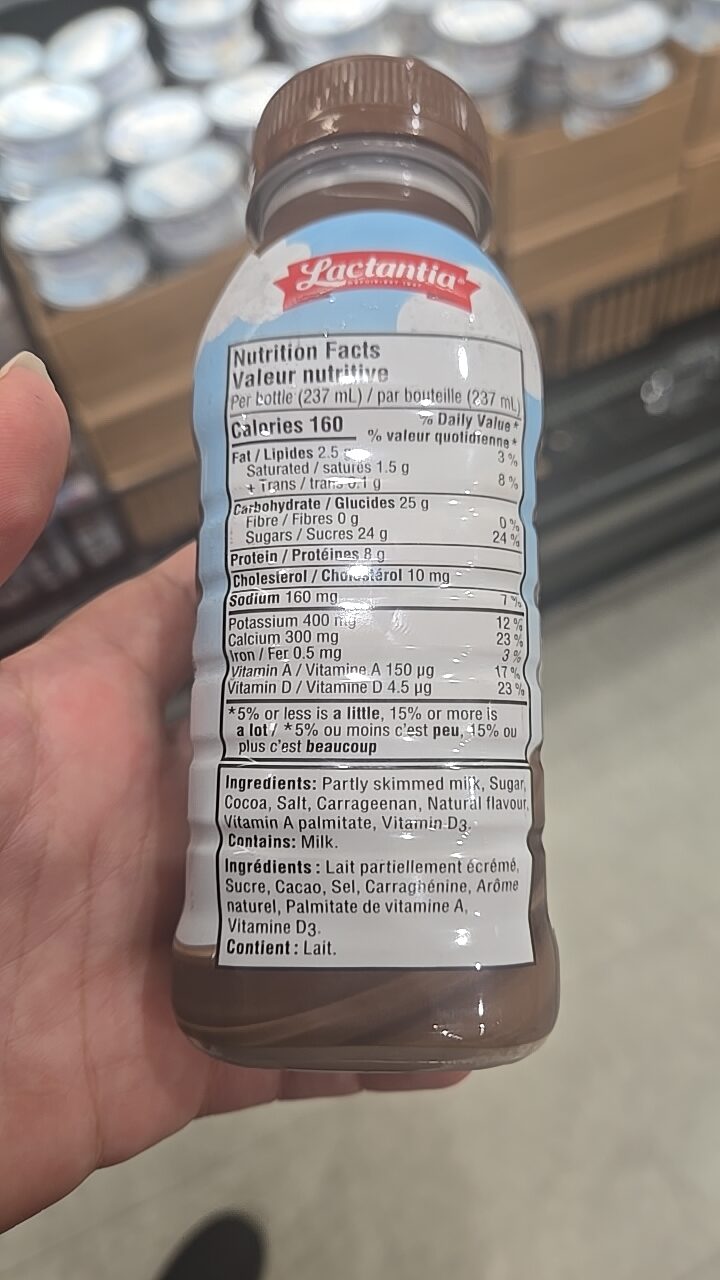
Barcode: 068200466590
Lactantia
DOUBTFUL
📝 Reason: This product contains religiously questionable substances. Their acceptability varies among Islamic scholars based on potential derivation methods and sources.
🏷️ Category: Dairy, Beverage
📄 Certificates: Partly Skimmed Milk, Sugar, Cocoa, Salt, Carrageenan, Natural Flavour, Vitamin A Palmitate, Vitamin D3., Contains: Milk., Vegetarisch
Ingredients:
Details
Is Lactantia Halal? A Detailed Examination
Lactantia is a popular dairy product that many consumers enjoy. However, if you are following halal dietary laws, you might be wondering whether this product meets those standards. The halal status of Lactantia can be described as ‘Doubtful,’ according to its ingredients and their origins. In this article, we will explore the product’s ingredients and their respective halal statuses to provide you with a comprehensive understanding.
Understanding Halal
Halal is an Arabic term that means permissible in Islam. Foods that are halal are acceptable for Muslims to consume, while haram refers to those that are prohibited. A product is deemed halal if it doesn’t contain any haram substances, and its method of preparation is also compliant with Islamic law.
Ingredients Breakdown
Lactantia contains the following ingredients:
- Partly skimmed milk
- Sugar
- Cocoa
- Salt
- Carrageenan
- Natural flavour
- Vitamin A palmitate
- Vitamin D3
- Milk
Individual Ingredient Review
Let’s take a closer look at each ingredient’s halal status:
- Partly Skimmed Milk: Permissible in Islam. This ingredient does not raise concerns regarding its halal status.
- Sugar: Permissible in Islam. Like milk, sugar is widely accepted in halal diets.
- Cocoa: Permissible in Islam. Cocoa itself is halal and can be safely included in your diet.
- Salt: Permissible in Islam. Salt does not pose any halal issues.
- Carrageenan (E407): Doubtful. This ingredient is a thickening agent obtained from seaweed. While it can be halal, concerns exist regarding its source, particularly if it’s extracted from animals.
- Natural Flavour: Permissible in Islam, generally regarded as halal unless derived from haram sources.
- Vitamin A Palmitate: Permissible in Islam. This vitamin is often synthetically produced, raising no halal concerns.
- Vitamin D3: Permissible in Islam, although it’s essential to check if it’s sourced from lanolin (sheep wool) or synthetic origins.
- Milk: Permissible in Islam, a staple in the Muslim diet.
Concerns Over Halal Status
While most ingredients in Lactantia are halal, the carrageenan raises some eyebrows among Islamic scholars. Its halal status shifts based on the source it is derived from, which is often unclear to consumers. Because of this uncertainty, Lactantia’s overall halal status is considered ‘Doubtful.’
Certification Aspects
Unlike many products that proudly display halal certifications, Lactantia does not have a halal certificate, further contributing to its ambiguous status. Consumers seeking fully halal products often look for such certifications to make informed choices.
Conclusion
As we have explored, Lactantia presents a unique case in the realm of halal foods. While many of its components may be individually considered halal, the exact source and production methods of carrageenan raise questions. Therefore, consumers who strictly adhere to halal dietary laws might want to exercise caution with this product. We recommend reaching out to the manufacturer for clarification on sourcing and production methods, which will help you make an informed decision on including Lactantia in your diet.
